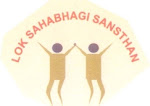Hi all,
It's been a while since I've had a time to post, so I thought I'd try to get back into the habit. A lot has been going on with LSS since my last post, so I'll just hit a few relevant points here, and come to the other things in later posts. I'm also going to try writing shorter, but more frequent posts for digestibility and practicality.
 |
| I am sitting in the village information and education center in Kukrela during the evening. The students are showing me their skills in typing and on MS word. |
First of all, I had the pleasure of visiting India at the end of December and beginning of January to see the work and strategize with Rohitash, Shyam, and Gopal on how to grow the organization, fundraise, become better administrators, etc. We came up with a list of organizations within and outside of India from whom we will solicit funds in the future. We also committed ourselves to developing proposals for 2-3 projects during the upcoming year, and we will submit these proposals to the relevant funding organizations. We are particularly keen to expand our computer education program, as the program has been very popular and the participants are demanding further programs to get certifications that they need to get many desirable jobs. We are currently developing a proposal to meet this need and hope to submit it to some funding agencies in the coming months.
I saw many exciting things in the work while I was in India as well. I could clearly see that the computer program is generating considerable excitement, especially amongst the youth and their parents. In the evening at Kukrela, where we have a permanent center, the students were practicing typing and using MS Word while I was there. They would take turns using the computer and teaching each other different tricks and functionality when someone was struggling to perform a given task. I could tell that many of the student were developing considerable ability with the computer, which is pretty amazing considering that basically no one in this village had access to a computer before our program. I think we need to follow up and make sure that these students continue to have access to computers, but I find the progress already to be very encouraging. Even better, in the many discussions I had with adults, especially in our microcredit meetings, the parents would always bring up technology and computers and how they wanted to make sure their kids had access to them so that they could partake in the modern economy. I think our program addresses these needs very well and we will continue to look for opportunities to help the rural youth have an equal opportunity at attaining success.
 |
| A student from our computer education group who has computerized the record-keeping for his family dairy! I think this is a very exciting output of our computer education program. It is a practical use of computers that gives economic benefit and keeps the benefit in the village area. Great stuff. |
A couple of examples of the outputs from this program, besides the general progress in computer literacy mentioned above, is one students who decided to go to engineering school after working with the computers, and another student who computerized the records in the his family's dairy. Obviously, in the former case the student probably already had the means and ability, but I think our program definitely has the potential to inspire students to consider programs and field that they would not have previously because of fear or because it had not occurred to them. The case of the student computerizing his family dairy's records is a great example of our program imparting skills that then allow practical and economic gain for the village families. Our over-arching vision is to give villagers the same economic and educational activities as their urban counterparts, and, to the extent possible, allow them to stay in the village in this process. In this sense, this dairy computerization is a perfect output of our program: it gives economic opportunity, and allows the money and skills to stay in the village area. Inspiring stuff.
Finally, since I said I'd keep things short, we are applying to be able to receive foreign funds directly, under the so-called Foreign Contributions Regulation Act (FCRA). During the first three years of an NGO's existence, the government of India does not allow it to receive funds from abroad directly, but instead those funds must be channeled through an intermediary organization that is established (has FCRA registration) and oversees the work to make sure it is being carried out efficiently and transparently. Our overseeing organization, NSS, has been great, but the cost of their oversight is about 17.5% of our annual budget, so it will be nice to have this money freed up for our own operations. Additionally, we did not see it fit to fundraise during this initial three-year period since so much of the money would go to the oversight organization. We also wanted to focus on building our programs with a strong and sustainable foundation, without worrying about fundraising during the first three years. I think we have accomplished this and are now ready to move into another phase for our organization. With FCRA registration, we will start to fundraise and hopefully build up LSS's work, both in terms of the depth and breadth of our projects. We are excited for this next phase to begin. I will keep you updated on this process as it proceeds.
Hope you're having a great week!















